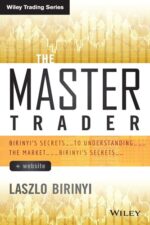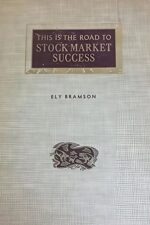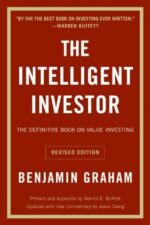Getting Started in Hedge Funds: From Launching a Hedge Fund to New Regulation, the Use of Leverage, and Top Manager Profiles
$11.40
Getting Started in Hedge Funds, focuses on the current state of the industry; how hedge funds did or did not survive the subprime and subsequent credit crisis; and, what the future holds for investors.
Author’s Introduction:
The purpose of this book is to provide an introduction that explores these types of operations. I purposely did not examine managers and funds that are covered in the popular press. Instead I spent time getting to know managers who are known on Wall Street but not outside it. They manage portfolios ranging in size from $2 million to over $2 billion. In some cases they operate by themselves out of a small office with one assistant. Others have multiple offices around the globe with staffs of a hundred or more.
The idea of the book is to provide you with a clearer view at how these people operate in the various markets that they trade. Because each employs different trading methodologies and investment philosophies, this book provides you with a unique look at the business of managing money. It will, I hope, give you the insight you need to find alternative means to achieve your investment goals. While all the managers are different, they all have two things in common: They use some piece of the same business model and each is an entrepreneur.
To understand how hedge funds operate, you need to understand the styles and strategies their managers use. While most conventional money managers own securities in hopes of price appreciation, many hedge fund managers employ alternative strategies that do not rely on the market’s going up: short selling, risk arbitrage, and the trading of derivatives. Most hedge funds employ strategies that allow them to hedge against risk to ensure that no matter which way the market moves, they are protected against loss.
Contents:
- Hedge Fund Basics
- How Hedge Funds Operate
- The Managers
- Hedge Fund Investing
Getting Started in Hedge Funds: From Launching a Hedge Fund to New Regulation, the Use of Leverage, and Top Manager Profiles By Daniel A. Strachman pdf
| Author(s) | |
|---|---|
| Pages | 210 |
| Format | |
| Publication Year | 2005 |
8 reviews for Getting Started in Hedge Funds: From Launching a Hedge Fund to New Regulation, the Use of Leverage, and Top Manager Profiles
Only logged in customers who have purchased this product may leave a review.










Boston Hurst (verified owner) –
Getting Started in Hedge Funds is a must-read for those who are considering operating a hedge fund or for anyone seeking a better understanding of the industry. Dan provides not only the history of the industry with insight from current managers, but also a road map and real-life examples on how to accomplish this goal.
Dani Blair (verified owner) –
Dan has a unique insight and a depth of experience in the hedge fund industry that few can claim. He articulates a clear map as to the history of the business as well as the direction it’s heading. It’s a great read for anyone looking to enter the business or simply further their knowledge in the area of hedge fund investing.
Adalee Richardson (verified owner) –
Loved it
Leona Clayton (verified owner) –
This well written informative book opened my eyes to many aspects of the hedge fund industry, but suffers from some huge omissions. It goes back to how the fund industry was started in 1940s by Alfred Winslow Jones and examines Jone’s philosophy. There’s interesting anecdotal histories of fund managers like Goldstein, Robertson, Meriwether, Niederhoffer, Vinik, and others, as well as investors George Soros and John Paulson. The book seems ambivalent about ease of starting a hedge fund saying first that little is requirements for starting, but each anecdote of leading managers recounts complaining of difficulty in starting operation.
There is no help on any quantitative aspects of hedging. There’s no mention of software apps, not even whether they are supplied by a brokerage house. In the section on hedge fund investing we see the bizarre statement that there is no science to hedge funds, nor to any investment. In fact there’s a great deal of science applied. The hedge fund arena appears to be full of “quants.” Especially interesting is the case of LTCM. It’s recounted by Strachman with no mention of the Black-Scholes method or if it was a factor in the failure of LTCM, or whether it is applied again now that LTCM has recovered from the letdown. Of course science doesn’t always work, but ignoring it entirely is a very large omission in this analysis.
The author’s emphasis on the need for investor due diligence appears overly optimistic.
Investors do not have the necessary resources for due diligence. Bernie Madoff was honest enough before things got bad and he started cheating progressively more and more. An ordinary Investor would have to be a mind reader to predict who will turn into a swindler. Madoff as well as other fund managers are good at camouflaging results. My understanding is that it was a very experienced examiner who detected anomalies and he was ignored for a long time by the SEC.
Robert Abbott (verified owner) –
Strachman’s book gives a high-level overview of the history, definition, and general structure of hedge funds. The basic topics covered are:
Positives: It’s a great, entertaining, and easy read – especially for non-professionals. His description of the evolution of the hedge fund industry, starting with A.W. Jones and through Soros, Robertson, and the technology bubble, was entertaining and informative. Strachman also gives an good bird’s eye view of the various players in the industry, from individuals and interviews with hedge fund managers like Steve Cohen to managers of managers and investment consultants. Interestingly, one of my favorite parts of the book was the appendix, which gave a good description of hedge fund strategies along with real life examples of investor memorandums (both offshore and onshore).
Negatives: Strachman falls short on information on starting a fund. To be fair, he provides a good high-level overview of some the essential ingredients – marketing and fundraising, legal and accounting for forming documents and auditing statements, and the need for a track record and minimum in AUM – but falls short of the detailed information that’d be needed to actually guide an investor in developing a fund.
Overall, a good introduction to someone casually interested in hedge funds, but not quite suited for the serious investor looking to start one.
Melany Neal (verified owner) –
I enjoyed the book and took several good points out of it. Readers expecting a detailed rundown of how to start and operate a hedge fund will be disappointed, but readers looking for an explanation of the hedge fund industry, some history and considerations for investing and structuring a fund may find value here.
Thalia Pugh (verified owner) –
I bought this book for my Seminar in Finance class and it was a great help. Extremely easy to read and follow the subjects. Topics are broken down with definitions noted on the side. Will be keeping this with me for future reference.
Kane Glass (verified owner) –
This is a nice book about the hedge fund industry. However, what I, a small/indie stock trader and an author myself, liked the most about this book is the small interview with Steve Cohen, the founder of SAC Capital. Steve Cohen has had a major influence on my stock trading philosophy in my beginning years, and I consider him one of the great stock market operators of all time, dispite all the bad media around him, together with Jesse Livermore, Bernard Baruch, Gerald Loeb, Nicolas Darvas, William O’Neil, and Edward Lampert. So, only this small interview with Steve Cohen is already worth the price of the book, as Steve Cohen has given only a very few interviews in his life, and I picked up a few stock market tips of Steve Cohen from this small interview like:
* It is an information business and the only way to succeed is to pay attention to what is going on;
* We don’t get married to positions. If things are not working out the way we had hoped, we get out;
* We might be IBM for a number of reasons like the computer sector is strong or the analysts have good expectations;
* Nothing stays the same in this business. You have to constantly adapt and evolve and learn what the new game is and then play accordingly;
* There are more trading opportunities when the markets get a little more volatile;
* This can be an all-consuming job, but it is fun. Everyday there is something new. It is a game. It is like playing a sport everyday.
For the rest part, the book is perhaps more relevant to people who are seriously considering going into the hedge fund business or are just curious about the hedge fund industry: its history, statistics, regulations, etc. However, I also liked the the stories about the unforgiving nature of the markets and how even the brightest minds in the industry like Long Term Capital, Soros, Tiger, Lehman, Bear Stearns, Niederhoffer, etc. have done mistakes and suffered big losses. There were also a few nice insights from/about Jim Rogers, Soros, Steinhardt, Vinik, Wyser-Pratte and other hedge fund managers, and of course Alfred Jones, the founder of the hedge fund industry.
I also liked the author’s idea that to be a successful trader one needs to have drive/ambition, self-confidence and humor. As to me, I think there are about 10 things in trading that seprate the best from the rest:
* Passion
* Understanding of psychology
* Focus
* Hard work
* Unique stock trading plan and independent research
* Zen-like simplicity
* Open-minded flexibility
* Patience and timing
* Discipline
* Risk management and courage to take risks
* A little luck
I hope that the above info was a little helpful for you.